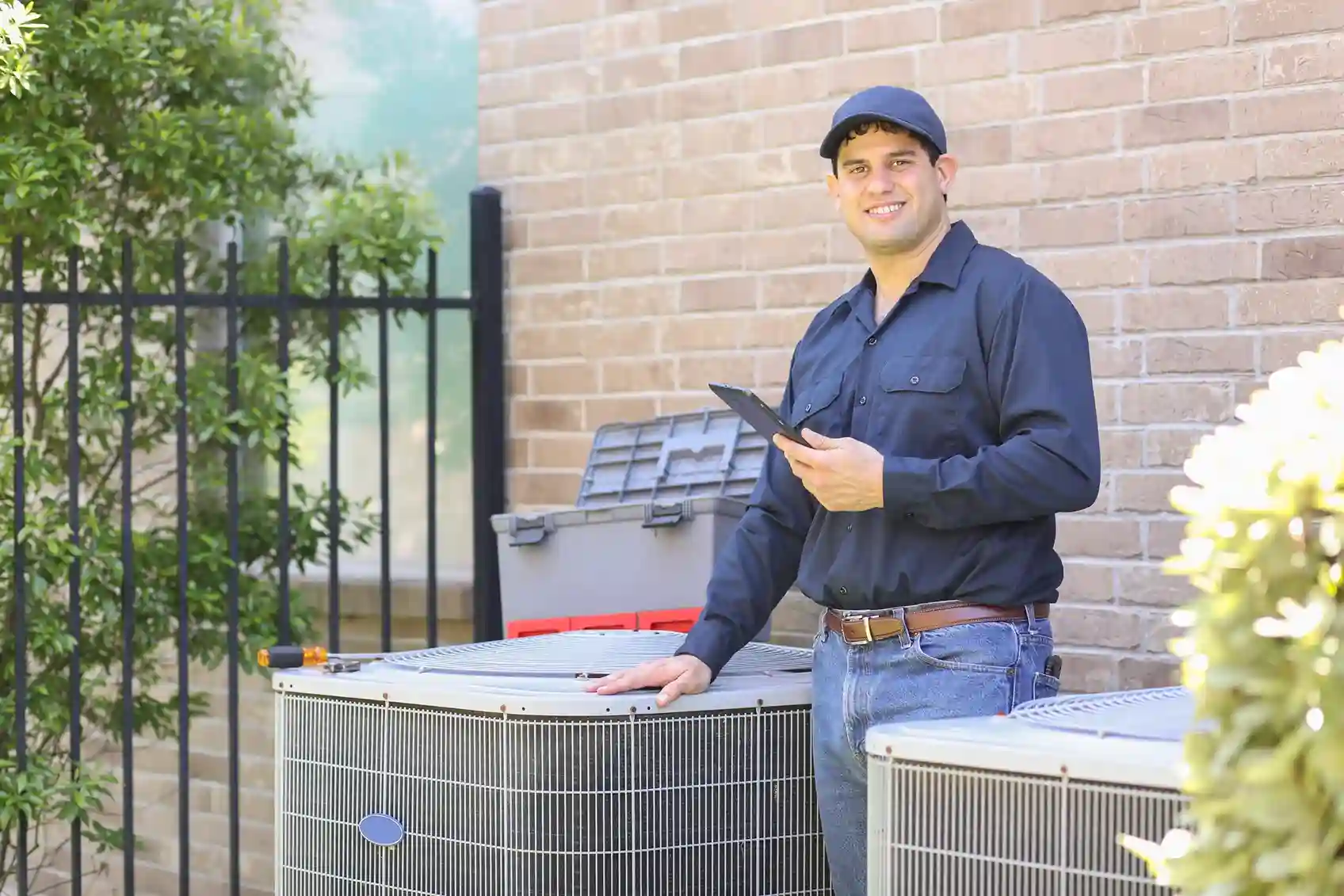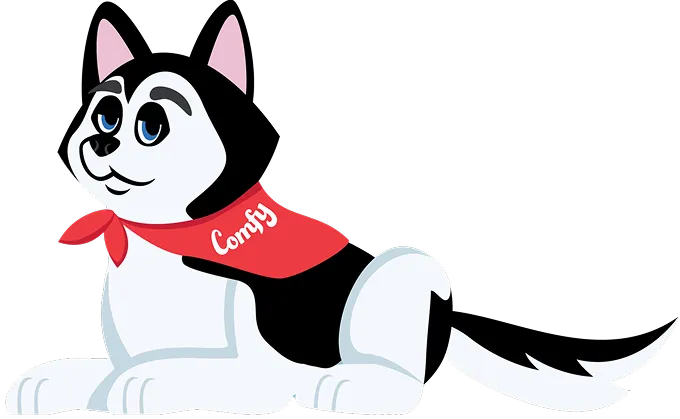HVAC Replacement Services in Prairieville, LA
Discover key indicators that signal it's time to replace your HVAC system. Ensure your home stays comfortable and energy-efficient with a timely upgrade.
Replacing an outdated or failing heating and cooling system is a significant decision for any homeowner in Prairieville. A new HVAC system offers the opportunity to enhance indoor comfort, improve energy efficiency, and potentially reduce monthly utility bills. Understanding when it's time to consider replacement and the benefits a modern system can provide is the first step toward a more comfortable and cost-effective home environment.
Over time, even well-maintained HVAC units lose efficiency and may require increasingly frequent repairs. For residents of Prairieville facing persistent issues with their current system, exploring replacement options is often a wise long-term investment compared to continuing to repair aging equipment.
Recognizing the Signs It's Time for HVAC Replacement
Several indicators suggest that your HVAC system may be nearing the end of its effective lifespan and that replacement might be necessary:
- Age: Most central Air Conditioning units and Furnaces have a typical lifespan of 10–15 years and 15–20 years, respectively. If your system is approaching or exceeding this age range, its efficiency is likely declining, and it may become less reliable.
- Frequent Breakdowns: Needing repairs multiple times within a heating or cooling season is a strong signal that components are wearing out. The cost of repeated repairs can quickly add up and may equal or exceed the cost of a new system over time.
- Rising Energy Bills: A sudden or gradual increase in your energy consumption and corresponding bills without a change in usage habits often indicates that the HVAC system is working harder than it should to maintain comfort, pointing to decreased efficiency.
- Uneven Temperatures: If some rooms in your home are consistently too hot or too cold, it could mean the system is no longer adequately distributing conditioned air, or the system itself is no longer sized correctly for your home's current needs after renovations or changes.
- Unusual Noises or Smells: Grinding, squealing, rattling noises, or persistent musty/burning odors emanating from your system or vents can signify mechanical problems or potential safety hazards that might necessitate replacement.
- System Cycling: If your system is constantly turning on and off (short cycling) or runs continuously without reaching the thermostat setting, it's likely struggling to keep up with demand or is improperly sized.
Addressing these signs proactively by considering an HVAC replacement in Prairieville can prevent unexpected breakdowns and ensure consistent comfort.

The Benefits of Upgrading Your HVAC System
Opting for a new HVAC system offers numerous advantages beyond simply restoring heating and cooling functionality:
- Improved Energy Efficiency: Modern HVAC systems, especially high-efficiency models like those with higher SEER (Seasonal Energy Efficiency Ratio) ratings for AC and Heat Pumps, and higher AFUE (Annual Fuel Utilization Efficiency) ratings for furnaces, consume significantly less energy than older units. This translates directly into lower monthly energy bills.
- Enhanced Comfort and Air Quality: New systems provide more consistent temperatures throughout your home and can be paired with advanced Indoor Air Quality solutions like better filters, humidifiers, or dehumidifiers for healthier air.
- Increased Reliability: A new system comes with the peace of mind that it's less likely to break down unexpectedly, especially during peak heating or cooling seasons.
- Quieter Operation: Technological advancements have made newer HVAC units operate much more quietly than their predecessors.
- Better Control: Modern systems often integrate with smart thermostats and zoning capabilities, allowing for more precise temperature control in different areas of your home.
- Warranty Protection: New systems are typically backed by manufacturer warranties on parts and potentially labor warranties from the installer, protecting your investment.
- Potential Increase in Home Value: An energy-efficient, new HVAC system can be an attractive feature for potential buyers if you plan to sell your home in the future.
Types of HVAC Systems for Prairieville Homes
Prairieville's climate typically requires robust cooling capacity alongside reliable heating. Several types of HVAC systems are suitable, and the best choice depends on your home's structure, existing ductwork, budget, and energy goals.
- Split System Air Conditioners and Furnaces: This is the most common setup in the region, featuring an outdoor AC unit and an indoor furnace and coil, connected by refrigerant lines and ductwork.
- Heat Pumps: Heat Pump systems provide both heating and cooling using electricity. In warmer climates like Prairieville, they are highly efficient for heating during milder temperatures and function as a central air conditioner in the summer. They can be a good option for reducing reliance on natural gas or propane.
- Packaged Units: These systems contain all components (heating and cooling) in a single outdoor cabinet, often placed on a roof or concrete slab. They are common in commercial buildings but also used in some residential applications.
- Ductless Mini-Splits: Ideal for homes without existing ductwork, additions, or for zoning individual rooms, ductless systems consist of an outdoor unit connected to one or more indoor air handlers. They offer high efficiency and flexible control.
- Air Handlers: Used in split systems or with heat pumps, the Air Handler is the indoor unit that houses the fan, coil, and filter, circulating conditioned air through the ductwork.
Choosing the right size and type of system is crucial for optimal performance and efficiency. A professional assessment considers your home's square footage, insulation levels, window types, and orientation to ensure proper sizing.
The HVAC Replacement Process
Replacing an HVAC system is a multi-step process typically handled by experienced professionals:
- Initial Consultation and Assessment: A qualified technician will visit your home to assess your current system, evaluate your heating and cooling needs, inspect existing ductwork, and discuss your budget and preferences.
- System Recommendation: Based on the assessment, the technician will recommend suitable system options, explaining the pros and cons of each, including efficiency ratings (like SEER) and potential energy savings.
- Proposal and Agreement: You will receive a detailed proposal outlining the recommended equipment, the scope of work, the estimated timeline, and the investment required.
- Removal of Old System: The old unit(s) will be carefully and safely disconnected and removed, including the outdoor unit, indoor coil, and potentially the furnace or air handler. Proper disposal of refrigerants and old equipment is part of this step.
- Installation of New System: The new components are expertly installed. This includes setting the new outdoor unit, installing the new indoor coil and furnace/air handler, connecting refrigerant lines, electrical wiring, and potentially modifying or sealing ductwork for optimal performance. A new thermostat is also installed and configured.
- Testing and Calibration: Once installed, the entire system is thoroughly tested to ensure it is operating correctly, refrigerant levels are accurate, airflow is proper, and the thermostat is communicating effectively.
- Final Walkthrough and Explanation: The technician will walk you through the new system's operation, explain maintenance requirements, review warranty information, and answer any final questions you may have.
A professional replacement ensures the system is installed according to manufacturer specifications and local codes in Prairieville.
Factors Influencing HVAC Replacement Cost
While specific pricing varies greatly depending on the specifics of the job, several factors influence the total cost of an HVAC replacement in Prairieville:
- Type and Size of System: Higher efficiency systems (higher SEER/AFUE ratings) and larger capacity units typically have a higher upfront cost. The type of system (split system, heat pump, ductless) also impacts the price.
- System Brand and Features: Different manufacturers and models offer varying levels of technology, features, and warranties, affecting the cost.
- Installation Complexity: Factors like the location of units (attic, crawl space, ground level), modifications needed to existing ductwork or electrical lines, and accessibility can influence labor costs. Replacing ductwork entirely will add significant cost.
- Needed Ancillary Components: This can include new thermostat installation, filter upgrades, zoning system integration, or required safety features.
- Permits and Inspections: Depending on local regulations in Prairieville or Ascension Parish, permits and inspections may be required, adding to the cost.
Focusing solely on the lowest upfront price may overlook the long-term value provided by increased efficiency, lower energy bills, and fewer future repair costs.
Exploring Financing Options
Investing in a new HVAC system is a significant expenditure, and Financing options are often available to help make the purchase more manageable. Reputable HVAC companies frequently partner with financial institutions to offer payment plans. These options may include various terms and potentially low monthly payments, allowing homeowners to benefit from a new, energy-efficient system immediately while spreading the cost over time. Exploring these financing possibilities can make upgrading to a more comfortable and efficient home a reality sooner.
Warranties and Professional Installation
New HVAC equipment typically comes with manufacturer warranties covering parts for a specific period (often 10–12 years, sometimes longer for certain components like heat exchangers). Labor warranties covering the installation work are often provided by the HVAC company performing the replacement. Professional installation is crucial not only for optimal system performance and longevity but also to ensure manufacturer warranties remain valid. Improper installation can void warranties and lead to premature system failure or inefficient operation.
Choosing a licensed and experienced HVAC contractor in Prairieville is essential for a smooth replacement process and long-term satisfaction with your new system. Look for contractors with local knowledge, proper licensing, insurance, and a history of reliable service in the area. They can provide expert guidance, perform accurate system sizing, and execute the installation correctly.
For residents in Prairieville considering an HVAC replacement, consulting with a local expert can provide clarity on the best system options for your specific needs, detailed information on the process, and help you understand the potential return on investment through energy savings and enhanced home comfort.
Customer
Testimonials
Go With Experience



